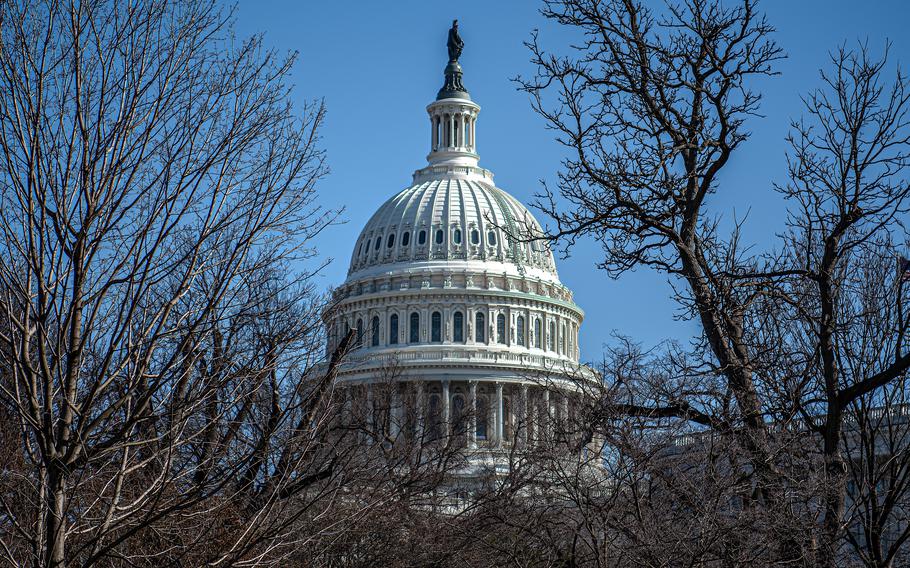
Congress has just one month to act on a self-imposed deadline to pass an annual bill to outline military spending, even as the incentives have grown since Election Day for both parties to punt into the new year when Republicans will have control of all three branches of government. (Stars and Stripes)
Governors are urging Congress to swiftly pass an annual defense policy bill that includes a measure that all 55 governors agreed is important to preserve the state control of the National Guard.
The Fiscal Year 2025 National Defense Authorization Act, which outlines defense policies and priorities for spending, includes a one-time transfer of 14 Air National Guard units into the Space Force but retains a governor’s ability to nix any transfers and makes moving of units optional.
The effort received bipartisan support from every state governor and more than 100 members of Congress.
“Upon an immediate return to the regular order of business and as deliberations continue for the must-pass FY25 National Defense Authorization Act, governors urge Congress to retain the … amendment language in the final NDAA,” Colorado Gov. Jared Polis and Oklahoma Gov. Kevin Stitt, co-chairs of the National Association of Governors, said Monday in a statement.
“All 55 Governors, as well as over 100 congressional members have provided letters to the House and Senate Armed Services Committee reiterating the need to sustain this long-standing federal-state partnership to ensure military readiness and maintain a unified order of command.”
Problems arose for governors earlier this year when the Department of the Air Force proposed moving the 14 Guard units from six states into the Space Force, which will eventually offer part-time service. The move involves roughly 600 troops, according to the Air Force.
Governors were immediately up in arms about the proposal because they fear loss of control and the ability to recruit and retain troops within their states. Now they want to ensure the temporary fix makes it into law as the House and Senate reconcile their own versions of the bill.
While the authorization bill outlines priorities that begin at the top of the fiscal year, which is Oct. 1, it has become more common in recent years for the bill to become law in December.
Similar delays have plagued the defense appropriations bill, which also has yet to pass and led to Congress approving a “continuing resolution” to keep the Pentagon funded at last year’s levels.
That resolution expires Dec. 20.
Democrats would like to hold a vote while they still control the Senate. Republicans could wait until they have the majority in both the Senate and the House starting in January, said Raphael Cohen, director of the Strategy and Doctrine Program at RAND Project AIR FORCE.
Delays in both measures have raised concern about adverse effects on military readiness
“It’s frankly killing the Pentagon,” Cohen said Tuesday of the delay in approving the bills.
He said delaying the legislation is “bad for the country for a host of reasons.” A continuing resolution halts any spending on new programs and keeps existing programs operating at spending levels it may have outgrown.
“In an era where warfare is changing pretty dramatically, seeing the battlefield results of Ukraine or the Middle East, that’s a real problem,” Cohen said. “It also means that money doesn’t get spent as efficiently because the dollars run out. So you have to do surge in the last half of the year.”